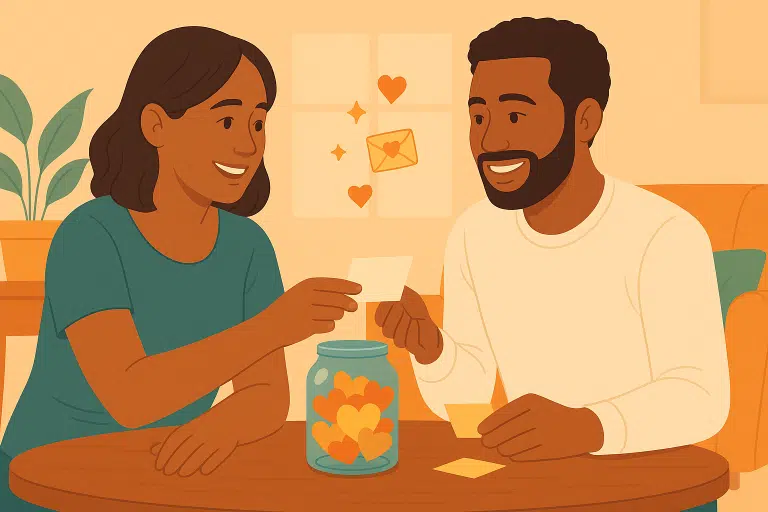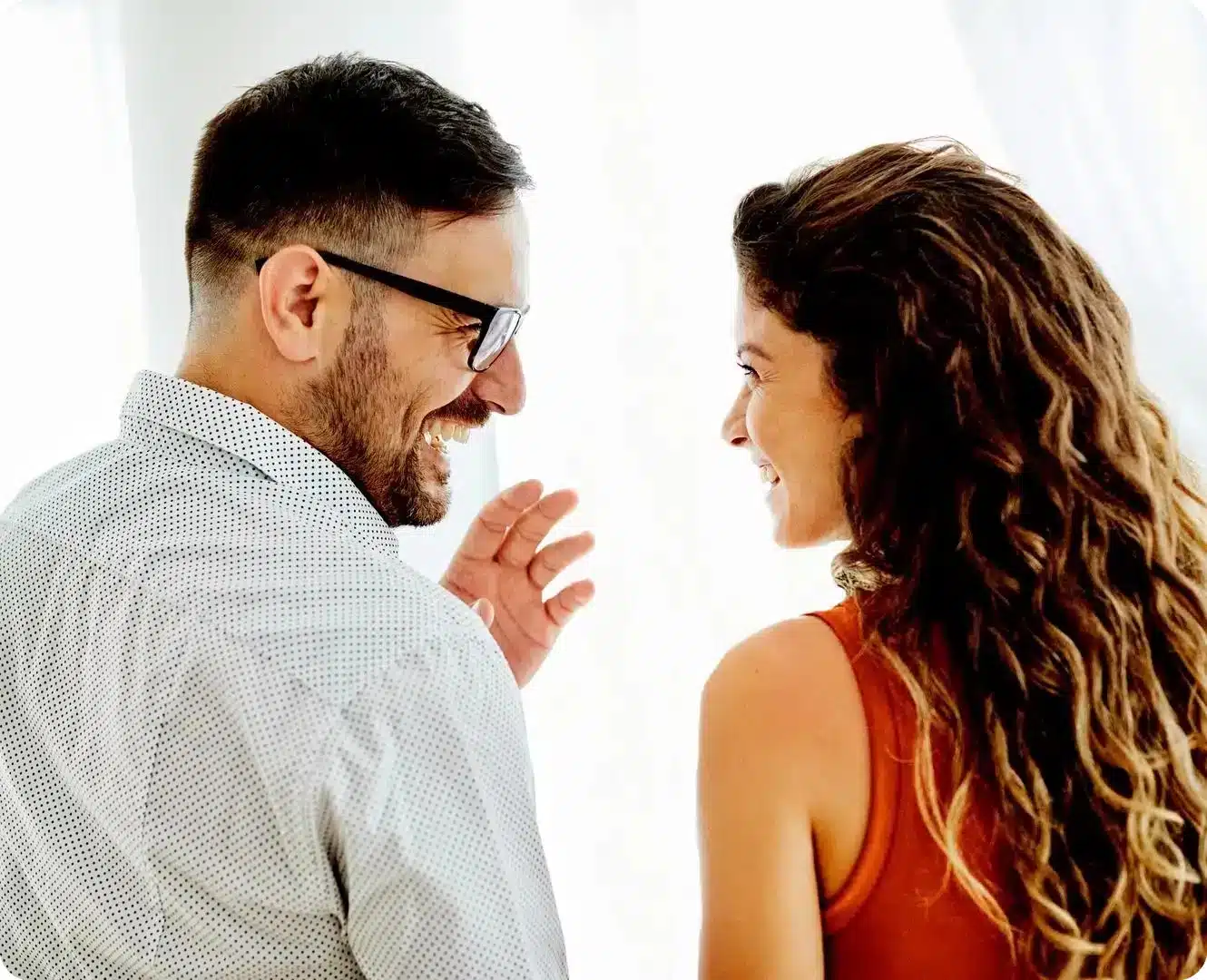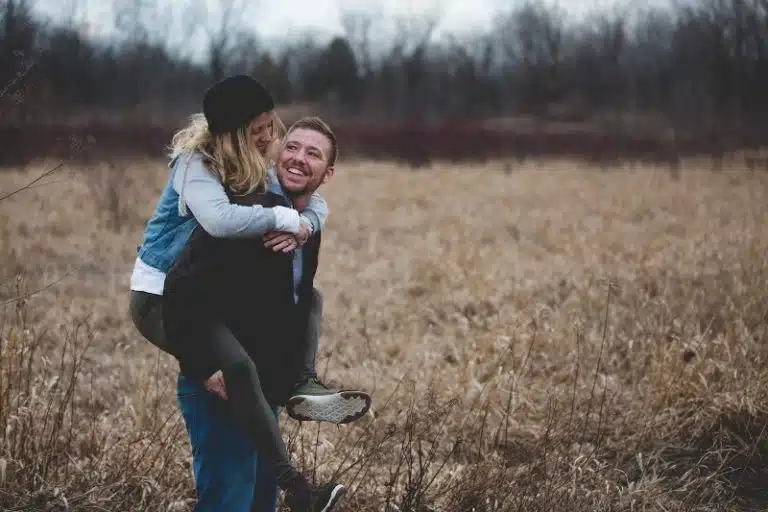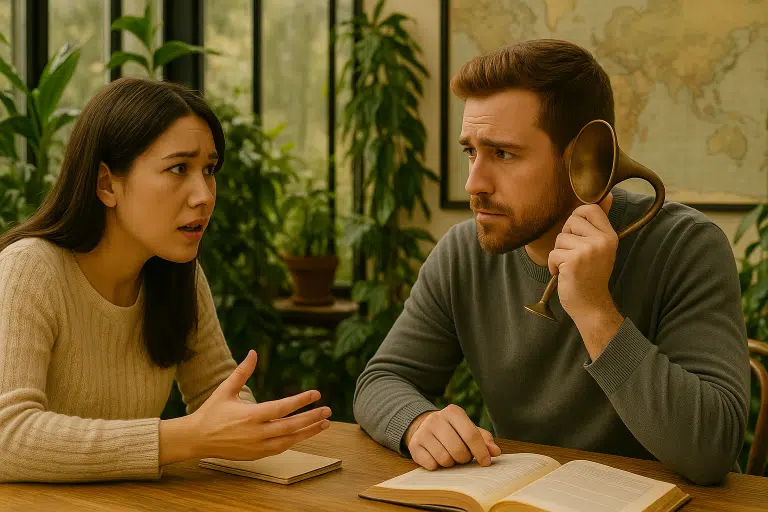
An AI Therapist? Let’s Unpack the Pros and Cons
Artificial intelligence (AI) is showing up everywhere these days—even in therapy. From chatbots that check in on your mood to apps that help you manage
 Have you and your partner been feeling emotionally disconnected from each other?
Have you and your partner been feeling emotionally disconnected from each other?
Are both of you tired of continually falling into the same cycles of conflict?
Deep down, do you feel like your partner just doesn’t “get” your point of view or understand where you’re coming from?
Maybe you love your partner, but you feel like you’re just not “in love” anymore. Somewhere along the way, the relationship lost its spark. Now you feel like you’re just roommates—two ships passing in the night, both of you too worn out from your daily routines to make time for each other. Somehow, you’d both rather scroll on your phone than turn to each other.
Whenever you try to connect, conflict arises and the same old arguments rear their ugly heads. All over social media, you see other couples posting their “highlight reels” and conclude that your own relationship just isn’t good enough. Whatever your reason, you may be thinking it’s time to talk to a couple therapist.
Perhaps you’re afraid that your marriage or relationship won’t last. You might wonder if relationships are actually supposed to be this hard, or if you and your partner just aren’t a good fit.
Your doubts may have been brought on by disagreements about your future together—you’ve realized you’re not on the same page about kids, finances, family boundaries, personal values or other important matters. Or maybe one of you looked outside of the relationship to fulfill emotional or physical desires, and now you’re wondering if you’ll ever rebuild trust in your relationship.
You and your partner are longing to restore your loving connection. If this is the case, we encourage you to pursue couples therapy with us. Here at Couples Counselling Centre, our goal is to help the two of you solve communication issues, deepen your intimacy, and reignite the spark that set your relationship aflame in the beginning.
A strong relationship isn’t something that you automatically have—it’s something that you build. “Build” is a verb, an action. It takes work to have a great relationship. It takes work to understand each other’s histories, traumas, love languages, ways of attaching, and emotional needs. And then to learn how to be able to meet those needs is a whole other story. Unfortunately, none of us are really taught how to be in healthy relationships and secure attachments generally aren’t modeled for us. This is why it’s so essential to seek support when our relationships fall on hard times.
When things aren’t going well in their relationship, most couples’ first instinct is to spice things up—going on more dates, having more scheduled sex, or reading marriage books together. Although these surface solutions may provide temporary happiness, they are only prescriptive changes. They don’t get to the root of a couple’s emotional disconnection.
To restore that connection and break out of negative cycles, you often need the help of a professional. On your own, you and your partner may be too close to the problem to see it from an unbiased perspective. You may tell yourselves “If only he would listen more” or “If only she would trust me”, without realizing that the issues run deeper than that.
Let’s be honest: before you come to therapy, part of you may worry that your therapist will side with your partner. At Couples Counselling Centre, we do not take sides or try to “find the bad guy.” Instead, we use what we know about the science of love to help couples build a safe and secure relationship. Even if one of you did something to break the trust in the relationship, couples therapy can help to repair the bond.
The foundation of our practice is attachment science, which teaches us to look at the unique ways that people have learned to show up in their relationships. Exploring your unique attachment style can help you become aware of the triggers, defenses, and negative communication patterns that keep you stuck in a frustrating cycle of conflict. It can help you and your partner better understand yourselves and figure out safer, more intimate ways of asking for your needs and connecting with each other.

Once you have developed an awareness of these cycles, we will begin to slow them down. The therapist will orchestrate “corrective emotional experiences” between you and your partner. This is what helps heal relationships from the inside out. We don’t give homework and we don’t give worksheets for you to do. This is what we call experiential therapy.
The goal is first to help you become aware of the cycle you find yourselves stuck in. We do so by drawing from an approach called Emotionally-Focussed Therapy (EFT), a reliable, science-backed model that is considered the gold standard of couples therapy. The goal of EFT is to dig below the surface and understand the unmet emotional needs at the root of your disconnection. We’ll examine and diffuse the emotion that is fuelling the negative behaviour or negative cycle. In this way, many have called our approach “therapy from the inside out.”
As a small example we can all relate to, let’s say you get upset when your partner doesn’t do the dishes. You might tell your partner “You never do the dishes” and then your partner might respond with “that’s not true, I just did the dishes a few nights ago.”
Therapy can help you learn about why doing the dishes means so much to you. It’s probably because: When my partner leaves the dishes in the sink, it seems like they are expecting me to do it. I feel like I’m a servant in this house. I don’t feel valued. I’m telling you, no marriage ever broke up over dirty dishes —it is about the feelings that those dirty dishes elicit and the resentment underneath. No matter what your issue is, helping you get to what is underneath the surface is our specialty.
Our mission is to give you the tools to help you build security and intimacy in your relationship. These are basic human needs! If you don’t have them, it’s no wonder why you may be feeling ungrounded, irritable, depressed or like you’re always snapping. There is nothing wrong with you—these are needs we all have!
In order for therapy to work well, both of you need to feel safe and neither of you should feel “ganged up on.” The work we do is much more nuanced than simply looking at who’s right or wrong. Each of you has valid reasons for doing what you do, even if your behaviour isn’t always helpful. Therapy is all about understanding what’s fuelling your behaviour. Many of our couples have described this therapy as feeling like it is “from the inside out.”
With EFT counselling, 15 to 20 sessions are generally the standard. That said, if there is trauma in your individual histories or your marriage has sustained an emotional injury (such as an affair or other kind of deception), therapy may take longer. Regardless of how long the process takes, it’s important to be patient with yourselves—it’s not always easy, but it is almost always worth it!
We believe the long-term benefits of therapy outweigh the costs. While we don’t want to stretch your wallet thin, we encourage you to invest in your relationship. Not getting help could lead you down the road of divorce and separation, which can be emotionally and financially taxing on the whole family. We encourage you not to delay if you feel something isn’t right in your relationship.
At Couples Counselling Centre, the change we strive for is change from the inside out. Our mission is to help you and your partner fundamentally change the security and connection in your relationship. To learn more about our approach to marriage and couples therapy, you can head to the Book Now page to schedule a free 15-minute video (or phone) consultation with one of our therapists.


Artificial intelligence (AI) is showing up everywhere these days—even in therapy. From chatbots that check in on your mood to apps that help you manage

Pornography is, and has always been, a controversial topic. Porn is often viewed negatively and stigmatized in our society, making viewers feel shameful, guilty, and

We all hit rough patches in relationships. Whether it’s constant arguments, feeling more like roommates than partners, or a creeping sense of disconnection, many people

Proudly serving Individuals, Couples and Families all across Ontario!
Subscribe Now
Subscribe to our newsletter to get tips on how to keep the relationships in your life healthy. We promise we won’t spam you!
Our diverse team of therapists are proud members of






You cannot copy content of this page

Do you have a question and can’t find the answer? Looking for more info? Leave us a message below.
OR

Hey! Thanks for visiting us. Want to learn more or get started? Message us today!